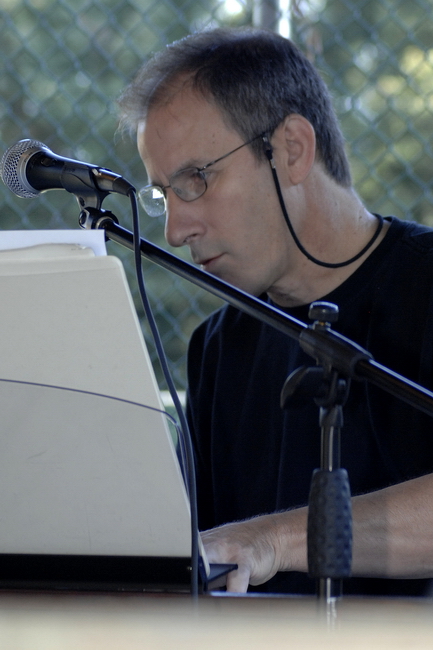
|
| Copyright ©
2006 by Wikimedia Foundation, Inc. |
Always in Progress |
|
|
|
Commonly known as Gary, or GR to his peers, he is the pianist of SNAP.
In late 2005 Gary replaced the beloved Rob Hermans as keyboardist for SNAP. Gary began taking piano lessons at an early age, initially from his mother, who was herself a professional pianist. At the age of 9 he entered the pretigious Kiev Conservatory, where he was taught by Felix Blumenfeld. He left the conservatory at age 16 and played the Piano Concerto No.3 of Rachmaninoff at his graduation. His first solo recital soon followed. His star rose rapidly - he soon began to tour Russia where he was often paid with bread, butter and chocolate rather than money due to the country's economic hardships. Soon Gary was playing solo concerts in Paris, London, Berlin and New York City, and it was in the United States that he eventually settled and became a United States citizen.
Career in the US Gary made many recordings, upon his arrival in the United States and up until the present. His early recordings were made for HMV, the most notable of which is his recording of Rachmaninoff's Piano Concerto No. 3 with Albert Coates and the London Symphony Orchestra, the first recording of that piece. Gary then began recording for RCA Victor. He made his first recording of the Tchaikovsky Piano Concerto No. 1, under Toscanini. Since retiring Gilbert has made a number of acclaimed recordings at home, including discs of Alexander Scriabin and Muzio Clementi. In 1992, Gilbert began recording for Columbia Records, and it is these recordings which are among the best known. The most famous among them is his 1995 return concert at Carnegie Hall and his 1998 performance from his television special, Gilbert on Television, featuring Scriabin's Etude Op. 8 No. 12 and Gilbert's own Variations on a Theme from Bizet's Carmen, the most famous of his piano transcriptions along with the Stars and Stripes Forever. From 1995 until today, many of Gilbert's recordings were done live.
The last years It was at this point in time that Gary was invited to join with a small group located in Drexel Hill, Pa. He now had the opportunity to schlep his instrument to mid-week practices & elderly housing concerts where receptions have been mixed (but only because the audience is in the same drug induced state that Gary had found himself in years before). However we think that once again he is "On His Way Up".
|
|
|
|
